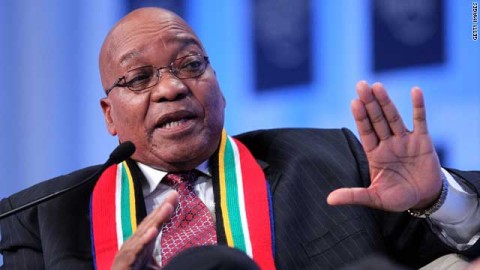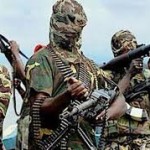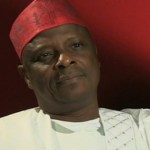The Zuma in ANC, By Owei Lakemfa
Articles/Opinion, Featured Contributors/Columnists, Latest Headlines Sunday, April 10th, 2016
BALTIMORE, MD (AFRICAN EXAMINER) – The move by the opposition Democratic Alliance (DA) to impeach South African President Jacob Zuma for corruption, was bound to end in failure. This is because the ruling African National Congress (ANC) had ahead of the April 5, 2016 motion, backed Zuma. For the impeachment to sail through, 267 votes in the National Assembly were needed and the ANC had 249 of the Parliament’s 400 members. The DA itself had 89 parliamentarians, the Julius Malema-led Economic Freedom Fighters (EFF) 25 while other opposition parties had 37 lawmakers.
So the vote was a forgone conclusion, and I am not sure anybody was surprised by the eventual results; 143 For, 233 Against. With the outcome so obvious even before the impeachment debate, it appears the opposition wanted to make a point although the ANC says the whole move was a publicity stunt. But that is not to say that the move did not have quite some support within the populace and ANC veterans like Ahmed Kathadra and Mathew Phosa who demanded Zuma’s resignation as a moral duty.
Perhaps in the nearest future, the ANC’s 100-member National Executive Council may bow to pressure and replace 77-year old Zuma with Deputy President Matamela Cyril Ramaphosa, 64. But beyond Zuma becoming a political liability – following his being found guilty of misapplying part of the $23 million state funds meant to enhance the security of his private home, for other construction – would replacing him with Ramaphosa be in the interest of the country?
Ramaphosa was a giant in the anti-Apartheid struggle. He led the powerful National Union of Mine Workers in the charge against the forces of Apartheid. The legendary Nelson Mandela, the country’s founding President had preferred him as his successor. In his 1994 autobiography; LONG WALK TO FREEDOM, Mandela had described Ramaphosa as “…one of the ablest of the new generation of leadership”. When he was elected ANC Scribe, Mandela wrote “Cyril Ramaphosa was elected Secretary-General, evidence that the torch was being passed from an old generation of leadership to a younger one…a worthy successor to a long line of notable ANC leaders. He was probably the most accomplished negotiator in the ranks of the ANC” However, in the subsequent struggle to succeed Mandela, the ANC leadership edged him out in favour of Thabo Mbeki, son of Anti-Apartheid great, Govan Mbeki and protégée of former ANC President, Oliver Thambo.
Ramaphosa then left politics for business. He appears to have made good use of the opportunity as he became a major player in banking and finance and chair of the telecommunication giant, MTN. He also became a Director in Standard Bank and Alexander Forbes. Forbes puts Ramaphosa’s personal worth in 2015 at $450 million.
Ramaphosa was involved in a controversy in August 2012. Workers at the Marikana Mines owned by Lonmin, a company he had interests in went on strike, and his business partners turned to him for assistance. In some unguarded moment, Ramaphosa in an e-mail referred to the striking workers as people engaged in a “dastardly criminal” act. When on August 16, 2012, armed police shot 34 of the miners dead and injured 78 others, he was accused of being behind what became known as the Marikana Massacre, the bloodiest single mass shooting since the end of Apartheid.
When President Mbeki fell out with his Deputy, Zuma, the latter upstaged him to become President. Zuma’s Deputy, Kgalema Motlante tried to replace Zuma, the latter foiled it and drew Ramaphosa out of business to become Deputy President. I am not sure he would be a better president than the grassroots Zuma who might not have as much commitment to the business community as Ramaphosa.
However the issue of leadership in South Africa is neither Zuma nor Ramaphosa; it is the ANC which has lost its way in the political wilderness.The ANC which led the South African people in the difficult struggle for independence and political power, unfortunately left the economic kingdom in the hands of the white minority as was the case under Apartheid. The ANC easily got lost and disoriented because after it came to power, it abandoned its compass; the Freedom Charter.
The Charter was also the fighting instrument of the people from its adoption in Kliptown on June 26, 1955 to May 10, 1994 when Mandela became the first black and democratically elected President. It was clear about the future and what the people were fighting for. For example, the Charter proclaims “That our people have been robbed of their birthright to land…and all the land (shall be) re-divided amongst those who work it to banish famine and hunger” It was therefore logical to expect that land which was stolen in 1913 by the whites will be redistributed amongst all citizens including the 80 percent Black, 9 percent White, 9 percent Coloured and 2 percent Indian/Asian.
The ANC even produced a programme of Redistribution, Restitution and Land Tenure Reform. But today, land largely remains in the hands of the white minority. In fact the opposition EFF claims that 40,000 whites, own 80 percent of lands leaving the rest 53 million South Africans to manage the balance 20 percent. While this figure has been disputed, no group including the Government has produced different statistics. The 2015 figures released by the Chief Survey-General merely states that 79 percent of the landmass is in private hands, but refuses to disclose to whom these private hands belong.
The Charter proclaims that: “The national wealth of our country, the heritage of South Africans, shall be restored to the people; The mineral wealth beneath the soil, the Banks and monopoly industry shall be transferred to the ownership of the people as a whole (and) All other industry and trade shall be controlled to assist the wellbeing of the people” But the economy remains the monopoly of the white minority and a sprinkling of blacks like Ramaphosa. The ANC interventionist programme of Black Economic Empowerment(BEE) has not mitigated this reality as employment soars to one fifth of the populace with 90 percent of them being blacks. There is yet no motion in Parliament to implement the Freedom Charter.
Related Posts
Short URL: https://www.africanexaminer.com/?p=31722






















